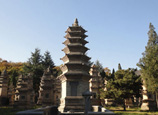
"The figures have never been categorized by authorities as a state secret before," Dong said, hinting that the ministry's refusal had no legal grounding.
Some non-governmental organizations have experienced the same difficulties when seeking environmental information disclosures from government agencies.
The Institute of Public and Environmental Affairs is a Beijing-based NGO that has developed water and air pollution databases to monitor corporate environmental performance in China.
Wang Jingjing, deputy director of the institute, said the institute once asked some city authorities to release lists of local companies that have been punished for polluting.
"Such information actually falls under what the governments should be releasing regularly, but some city authorities just refused to provide it," he said.
Zhan Zhongle, a law professor at Peking University, said every citizen has the right to have such information, adding that the timely disclosure of information can help prevent rumors from spreading.
"It's wrong to sacrifice the environment and people's health simply for economic development," Zhan said, adding that that some local governments have failed to release relevant information or take effective measures to monitor corporate pollution control efforts.
Notable progress has been made by Chinese authorities to boost environmental transparency over the years, including the releasing of real-time air quality information in 74 cities from January this year. However, much more needs to be done in this regard, according to analysts.
"We are striving to promote ecological civilization and build a beautiful China -- a goal that can only be achieved through progress in all relevant sectors and aspects," Dong said.

















 The millionaire philanthropist promotes 'Clean Plate Campaign' at CPPCC session.
The millionaire philanthropist promotes 'Clean Plate Campaign' at CPPCC session.


![]()
